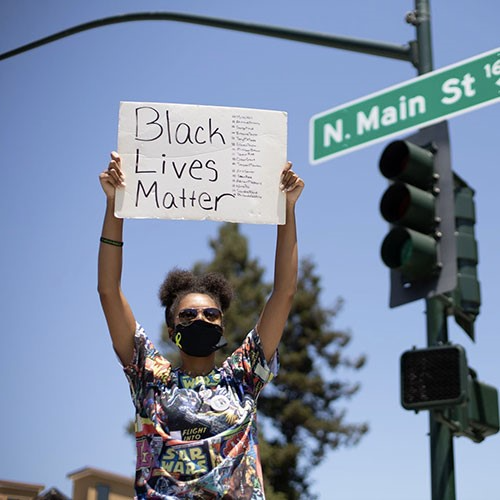Joe Biden ran to be a president for all Americans, and this includes young people who were critical contributors to his victory last November.
Young people have the power to influence presidential elections, but whether they influence presidencies is another matter entirely. Biden ran on promises that matter to young people. But, after less than three months in office, there is growing concern these promises were just lip service.
“Young people not only exist to represent the future of the country. We are here to effect change so that our country may have a future,” student activist Connor Kalahiki told the Center for Law and Social Policy.
“This past election, we overwhelmingly voted for Joe Biden, cementing our place as a critical voting bloc,” Kalahiki said. “Despite our efforts, the issues we face are not prioritized. We face high unemployment rates, mental health crises, and injustice environmentally, socially, and economically — the pandemic has only exacerbated this reality. We cannot be ignored anymore.”
“As a member of Gen Z, I was a part of this historic youth turnout. I supported Biden from the start,” Ashley Lynn Priore, a national youth organizer, wrote for The Progressive on Inauguration Day. But it took months to connect with someone to urge the campaign “to consider the differences in policy based on ages. When I finally did get a call back, I was told something like this: ‘This campaign is about organizing, not policy implementation.’”
Feeling dismissed, Priore concluded: “How do we expect to have a seat at the table for young Americans without actually engaging them in the White House? We are tired of being shut out.”
The Chicago Tribune opinion section publishes op-eds from readers and experts about specific issues of the day. Op-eds reflect the views of the writer and not necessarily the Chicago Tribune.
These experiences are not unique, according to new findings by my organization, the Springtide Research Institute, based on surveys of tens of thousands of Americans ages 13 to 25 each year. After surveying their political perspectives in conjunction with a 2019-2020 national study, we discovered that 41% of young people feel that most adults in their lives disregard their feelings about political issues — and more than half (52%) believe they know more about politics than adults give them credit for.
“Older people, like our parents, don’t really listen. They half listen to our opinions, thoughts, whatever the case may be. They don’t really hear us out,” Alyssa, 19, told us.
Additional data, however, suggests that young people are bearing the brunt of a political climate that doesn’t put much value on hearing out anyone — their age notwithstanding.
When asked to describe how the adults in their lives talk about politics, young people selected aggressive, dismissive and disengaged (65%) almost twice as often as they selected considerate and inviting (35%).
Young people are watching as their parents, coaches, teachers, bosses and even spiritual mentors fail to model healthy political discourse. The result is that young people are seeing this trend toward political toxicity come up in their own exchanges and experiences. “I have had very few healthy political conversations in my lifetime. Nobody wants to listen. They just want to talk,” explained Corey, 21.
Fortunately, Gen Z is course-correcting, even without much help from older adults in their lives.
Nearly half (48%) of all American adults say they’ve stopped talking to someone they disagree with politically, while few adults take time to educate themselves on what their political opponents really believe.
By contrast, 68% of young people have told us they would not stop speaking to someone who strongly disagrees with or opposes their political values. At the same time, 81% say it’s important to understand both sides of a political issue, and 84% agree that getting educated about the views and perspectives of others is important for seeing both sides more clearly.
While a majority of adults are avoiding conversations with those they disagree with politically, 77% of young people tell us they want to have conversations about political differences openly.
If it’s true that a majority of Americans are exhausted by the state of our politics, then we dismiss the voices and perspectives of young people at our peril.
It is precisely young Americans whose voices we should be propping up right now — because they are eager to subvert the political polarization that has become so commonplace that we now take it for granted.
Research is showing young Americans — even those with ages in the single digits — are informed and empowered when it comes to politics. We live at a time when information is more readily accessible than ever, and Gen Z is extremely savvy when it comes to accessing that information.
We can no longer justifiably assert that young people are naive and misinformed about politics, so we should stop treating them that way.
A brighter future for American politics is possible if we give Gen Z a seat at the table and hear what they have to say.

